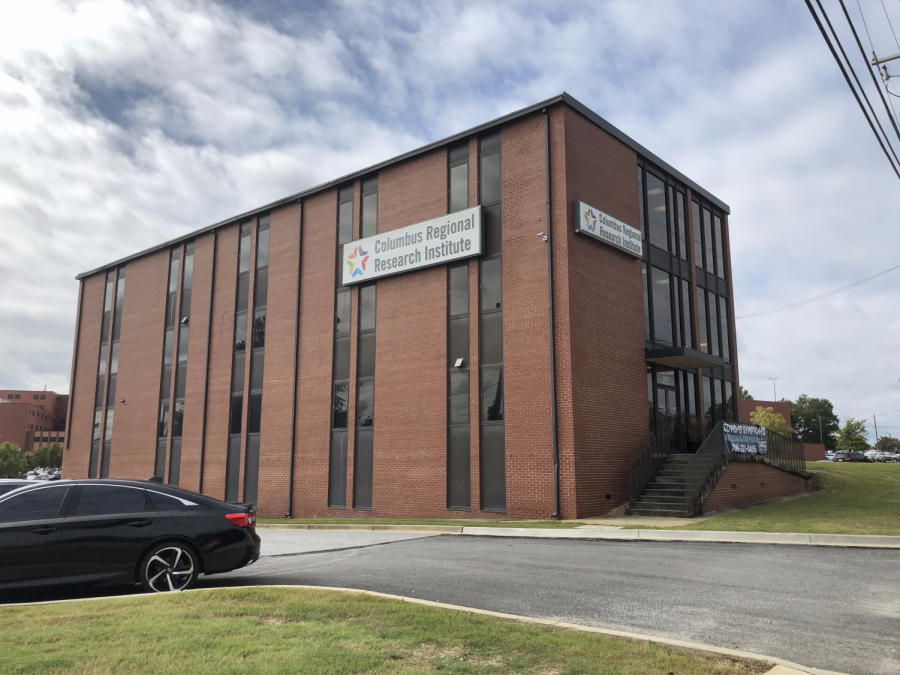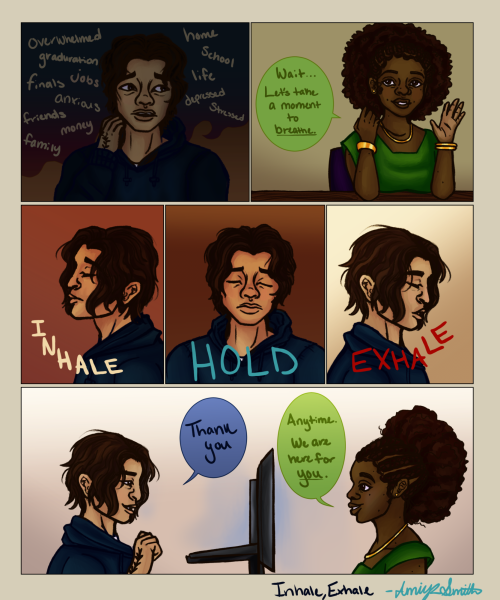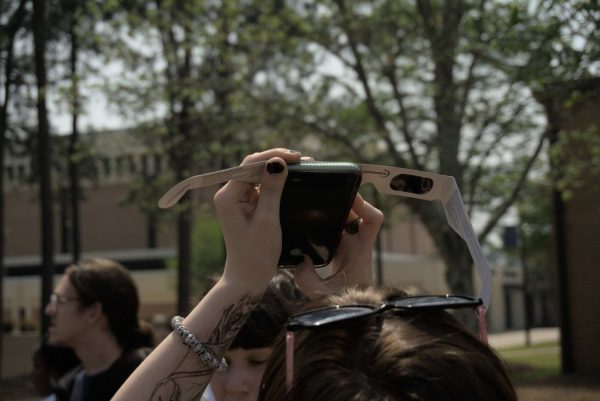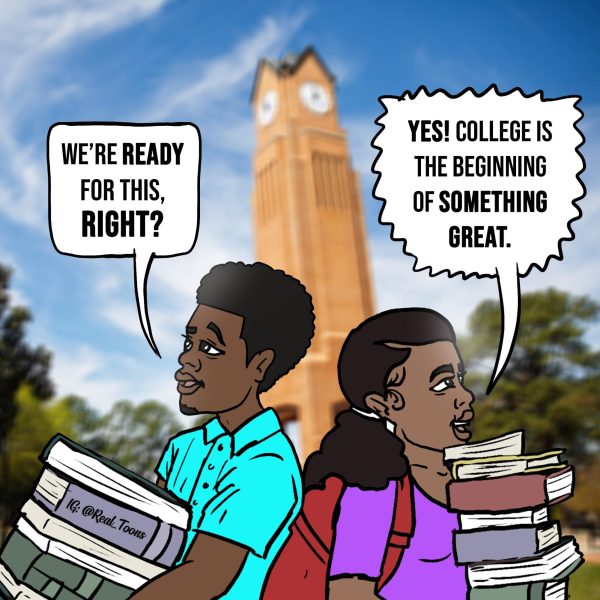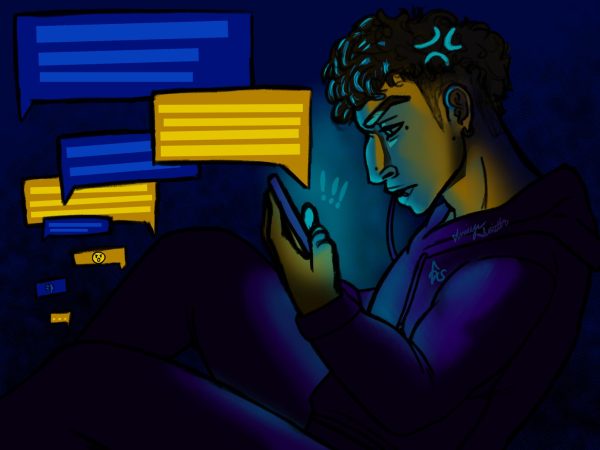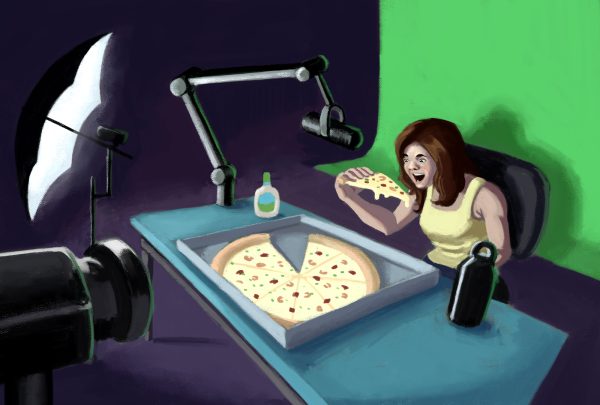IACT Health administers COVID-19 vaccine trials
The new COVID-19 vaccination study in Columbus that pays participants for each appointment and provides free testing throughout their trial
IACT Health is a research company in Columbus that is currently performing vaccine trials for COVID-19. IACT provides testing and treatment, performs vaccine research, and also pays participants for each appointment. COVID-19 testing during the trial is free for participants. Participants are paid $119 for each appointment and also get paid $5 each time they log their symptoms on an app required by IACT. The study lasts about two years, so participants can earn about $900 for the entirety of the trial. Participants can also choose to leave the study at any time, and are not required to participate for the entire two years.
Sophia Brown, senior History major, made an appointment at IACT to make extra money after her summer job ended. Brown heard about the company through a friend who works for the clinic.
“The customer service was really great. The medical professional that walked me through the terms and conditions, did my COVID test, and drew my blood was kind and answered my questions,” commented Brown on her experience with the IACT staff.
She mentioned that she struggled only with getting her blood drawn during the first appointment and ultimately was unable to do so after a few attempts, having to wait until her next appointment. She also explained that she has not experienced major side effects since beginning the trial.
“I haven’t noticed any side effects yet, but then again, I have only received the first shot. I didn’t even have soreness at the injection site, which I usually get when I get shots. I have a number of friends that are also participating in the study. They began a few weeks before I joined, so they are farther along. I haven’t received my second shot yet, but most of my friends reported flu-like symptoms after the second shot that lasted only a day or two.”
When asked about the possibility of the development for an effective COVID-19 vaccine, Brown expressed her initial enthusiasm at the thought. She emphasized the importance of administering the vaccine to a large, diverse population in order for it to be effective.
“I am still fully aware of the pressing necessity of a vaccine, but looking at recent polls, some 20% of Americans say they will not get a COVID vaccine if offered one today. For a vaccine to be effective, it needs to be administered widely. Even if a vaccine was widely available today, it does not mean there will be an end to the widespread human suffering and death that we are witnessing today. I hope that the Trump administration is able to deliver a coherent message in regards to a COVID vaccine, but I fear that they have damaged their credibility too much in the realm of public health to effectively convince the public.”
According to a poll conducted by NBC News, 44% of Americans would get a government-approved COVID vaccine if one becomes available and accessible. 56% of Americans either would not get vaccinated or are unsure. Political affiliations, age, ethnicity, and education appear to be the determining factors of differing opinion and demographic groups. The 44% claiming they would willingly get vaccinated are comprised of Democrats, senior citizens, Asian Americans, and college graduates. Independent and Republican parties appear to be more closely aligned in beliefs about an effective coronavirus vaccine. 59% of Asian Americans claimed they would get vaccinated. Other minority groups demonstrated hesitation in wanting to get a COVID-19 vaccine, with 40% of Hispanic Americans and 24% of Black Americans wanting a vaccine. 48% of white Americans claimed they would get vaccinated. Income also demonstrates a significant effect on the statistics, with Americans earning at least $100,000 annually serving as the majority willing to receive a vaccine.
Brown pointed out the lack of diversity in vaccine trials and their “failure to include diverse participation.”
“It is incredibly important for the widest demographic of people possible to participate in clinical trials in order to best understand the possible side effects, and as it stands, the trials are failing abysmally to garner a diverse pool of participants. Vaccine hesitancy towards a COVID vaccine falls along racial lines with non-white Americans less likely to get the vaccine. Of course, there is a long history of POC, specifically Black Americans, being abused by American health institutions, so that is another contributing factor to their hesitancy.”
Brown concluded by urging readers to get vaccinated once an FDA approved, government regulated coronavirus vaccine becomes available in order for the treatment to be effective on a larger scale.
“Once a vaccine is widely available, I urge everyone to get one. Also, don’t forget your flu shots!”
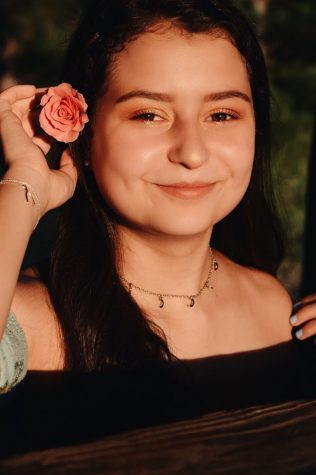
Nastasia is a sophomore in the College of the Arts as a BFA in Art major and Theatre minor.



